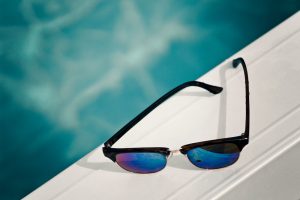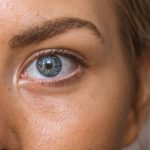Are Sunglasses Necessary While Outside?
Patients frequently ask us, “Are sunglasses necessary?”  We always recommend that our patients protect their eyes from UV radiation. Although the sun’s rays make life possible and pleasurable, UV radiation from the sun causes damage to our skin and eyes over time. Fortunately, sunglasses help prevent sun damage to your eyes.
We always recommend that our patients protect their eyes from UV radiation. Although the sun’s rays make life possible and pleasurable, UV radiation from the sun causes damage to our skin and eyes over time. Fortunately, sunglasses help prevent sun damage to your eyes.
Wearing quality sunglasses decreases the damage while you continue to enjoy time outside and your favorite sports or activities. Sunglasses are also associated with style and glamor. Just think of the image of the movie star wearing iconic sunglasses! However, They are not just for fashion. Sunglasses are essential when you consider the health benefits with comfort and style options.
Let’s first consider why sun protection is crucial for maintaining the health and longevity of your eyes. This understanding will make it easier for you to choose the most appropriate sunglasses for your needs.
Are Sunglasses Necessary?
Many people don’t realize that their eyes can get sunburned similar to their skin. The condition known as photokeratitis is the result of too much UV radiation over a short time period. Some of the symptoms include pain, red eyes, extreme light sensitivity, tearing, and a gritty sensation in the eyes. Fortunately, it is temporary much like a sunburn to the skin. Unfortunately, it can be very painful.
Prolonged sun exposure leads to other long-term problems beyond photokeratitis. UV damage accumulates over time. This is why we recommend that our patients wear sunglasses daily and throughout the year. The sun is a leading cause of premature aging to the eyes, but the damage can be delayed for a lifetime of healthy eyes. Proper sun protection helps prevent a range of eye-health issues including:
- Cataracts
- Abnormal growths in the eyes called Pterygium
- Macular Degeneration
- Skin Cancer around the eyes
In addition to preventing damage to your eyes, sunglasses enhance your daily comfort. Since they reduce glare, they also reduce squinting. Some people don’t realize how light sensitive they are until they experience improved comfort from wearing a good pair of sunglasses.
Considering the health benefits of sunglasses, it should be no surprise that the American Optometric Society (AOA) also recommends sunglasses for everyone whether you wear corrective lenses or not. Depending on your needs, there are a range of options to protect your eyes from the sun.
If the health of your eyes is important, then yes, sunglasses or other protective eyewear are essential.
Choosing The Right Sunglasses For Your Needs
With so many sunglasses on the market, how can you be sure yours effectively protect your eyes? Choose quality eyewear from a reputable manufacturer. Not all sunglasses are equally effective, so style should not be the only factor in your choice. Many low-quality sunglasses use a spray-on UV coating that is easily removed by only a few normal cleanings.
The AOA issued guidelines to help consumers select sunglasses. These guidelines include:
- Broad spectrum protection blocking 99-100% of UV-A as well as UV-B.
- Screen at least 75% of visible light.
- Gray tinted lenses to maintain color recognition.
- Eyewear should fit close to the eyes and frames should fit the face’s contours.
- The lenses should match each other perfectly.
- Solid tints are ideal if you prefer gradients look for lenses that are darkest at the top and gradually fade.
- Don’t forget the kids! 80% of sun exposure to the eyes happens by the age of 20.
- If you work or play sports outside, choose sunglasses or safety goggles made from polycarbonate or Trivex® material.
Beyond, the AOA criteria, your personal tastes, comfort and activities may guide your choice in sun protection. There are as many options for sun protection as there are interests. Specialized Sunwear is available for those who play sports, work outside, or swim outside. Whether you are running errands, enjoying a backyard barbeque or hiking there is a pair of sunglasses for your needs.
Before you choose, try on the frames to find a pair that fits your head and offers enough coverage with few gaps. Wraparound sunglasses are a good option, but the style does not suit everyone. If you fall in love with a pair of frames but are not sure how protective the lenses are, take them to your eye doctor. If the protection is inadequate, your vision professionals may be able to replace the lenses with lenses that offer the protection your eyes need.
In addition to sunglasses, consider wearing a brimmed hat if you don’t like large-sized or wraparound sunglasses. Whether you wear a golf visor or a stylish sun hat the shade will help protect your eyes from any UV radiation that may come in through the gaps in your sunglasses.
Three Different Sun Protection Options For Your Eyes
These days we have choices when it comes to sun protection. Here is a brief overview of three popular options including new transition contact lenses.
Standard
Standard sunglasses lenses should offer broad spectrum UV protection. However, not every pair you find in a retail shop meet the AOA standards for sun protection. Be sure to check the specs to see whether the lenses you are considering meet the standard. Alternately, your eye doctor retails sunglasses that offer effective sun protection.
Polarized
Polarized lenses are designed to reduce the glare reflected off objects. Polarized lenses are popular in sunglasses because they result in clearer and sharper images. They are especially popular with people recovering from cataract surgery and who are light sensitive. Most polarized lenses offer UV protection.
AcuvueOasys Transition Contact Lenses
If you are a contact lens wearer, these lenses from Acuvue offer an alternative to sunglasses. These contacts use transition technology to adapt to changes light throughout the day. They offer 100% UV protection taking just 60 seconds to transition and 90 seconds to change back after you go inside.
Many patients love the comfort and convenience as the AcuvueOasys Transition Contact Lenses shields their eyes from glare in addition to the UV protection.
Ask yourself and your optometrist which sun protection options are best for you, rather than asking yourself, “are sunglasses necessary?” Choosing the right eyewear always starts with a thorough examination. If you are a Charlotte-area resident, contact Piedmont Eye Care today to schedule your examination.




